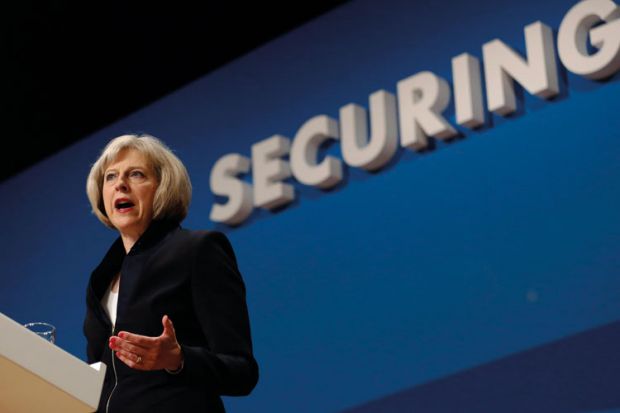The UK wants “the option to fully associate” to the EU’s next research programme, but wants to be able to “influence” the programme in return for an entry payment, Theresa May has said.
In a speech at the University of Manchester’s Jodrell Bank observatory on 21 May, the prime minister went further than she has in previous comments on the scope for the UK to become an associated country to the EU’s next research programme, Horizon Europe.
The programme starts in 2021, by which time the UK is scheduled to have left the EU.
“The United Kingdom would like the option to fully associate ourselves with the excellence-based European science and innovation programmes, including the successor to Horizon 2020 and Euratom R&D,” said Ms May.
“Of course such an association would involve an appropriate UK financial contribution which we would willingly make. In return we would look to maintain a suitable level of influence in line with that contribution and the benefits we bring.
“The UK is ready to discuss these details with the Commission as soon as possible.”
Sam Gyimah, the universities and science minister, previously said that the UK wanted to take part in the next research programme, but would not pay “any price” to do so.
Associated countries are not normally given the scope to influence the nature of the EU’s research programmes.
And Ms May’s comments also make clear that the UK wants the research programme to remain focused on “excellence”, rather switching some of its emphasis to capacity building in poorer states.
But Tim Bradshaw, chief executive of the Russell Group, described Ms May's comments as the "strongest indication yet" that the government would like to associate fully to Horizon Europe.
In her speech, Ms May also said that the UK will "always be open to the brightest and the best researchers to come and make their valued contribution".
"Today over half of the UK’s resident researcher population were born overseas," she said. "When we leave the European Union, I will ensure that does not change."




